- About SRMUH

Intellectually Diverse

50+ Career Programmes

Industry-Aligned Curriculum

Advanced Pedagogy
- Administration
AAAA+
Rated University in North India by Careers360
1st
University to have an academic affiliate with IET in Haryana.
70+
Programmes offered by the Mulitidisciplinary University.
1st
Indian University powered by NASSCOM Futureskills
50+
International and Industry Collaborations
47.89
Acres Campus well connected with North India
- ACADEMICS
Academics
-
- Department of Agriculture
- Department of Biotechnology
- Department of Chemistry
- Department of Computer Sciences
- Department of Environmental Sciences
- Department of Food Technology
- Department of Foreign Languages
- Department of Humanities and Social Sciences
- Department of Mathematics
- Department of Microbiology
- Department of Physics
- Physical Education & Sports
50 LPA
HIGHEST PACKAGE
925+
COMPANIES VISITED
2,024+
JOBS PLACEMENT
1,400+
PAID INTERNSHIP
- Admissions & Fee
International
AAAA+
Rated University in North India by Careers360
1st
University to have an academic affiliate with IET in Haryana.
70+
Programmes offered by the Mulitidisciplinary University.
1st
Indian University powered by NASSCOM Futureskills
50+
International and Industry Collaborations
47.89
Acres Campus well connected with North India
- Research
Experiential LearningPrestigious ScholarshipsEducation LoanResearch & Opportunity
- Student Life
Industry Aligned Curriculum
Innovative Web Technology
Interdisciplinary Learning Framework
- Alumni Association
- Information Corner
Information Corner
Youth Fest & Summit EventsEquity & InclusionHealth, Wellness and SafetyCommunity-Engaged Learning - Contact Us









